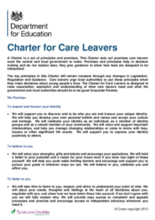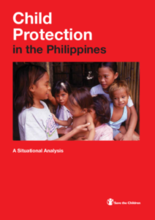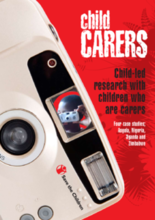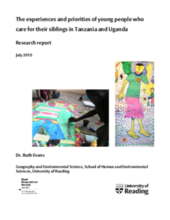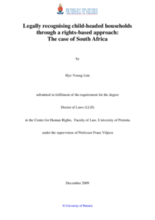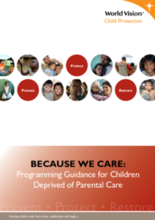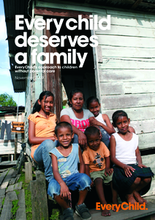Displaying 51 - 60 of 87
This Charter lists the promises that care leavers want the central and local governments to make. The Charter for Care Leavers is designed to raise expectations, aspirations and understanding of what care leavers need and what the government and local authorities should do to be good “Corporate Parents.”
This situational analysis was commissioned by the Child Protection Initiative as a preliminary exercise to develop evidence-based recommendations to guide Save the Children in the Philippines to develop interventions. Priority areas are children in residential care, children in armed conflict and disasters, children in situations of migration (including for trafficking purposes), and children in exploitative and hazardous work conditions.
Drawing on ethnographic research with five child heads and their siblings in Zimbabwe, this article explores how orphaned children living in ‘child only’ households organise themselves in terms of household domestic and paid work roles, explores the socialisation of children by children and the negotiation of teenage girls' movement.
This is the summary report on the research phase of a project looking at the needs of child-carers in four African countries; Nigeria, Uganda, Angola and Zimbabwe. The research consisted of a literature review and participatory child-led research in one site in each of the four countries.
This report presents key findings from a small-scale pilot research project that explored the experiences and priorities of young people caring for their siblings in sibling-headed households affected by AIDS in Tanzania and Uganda.
Explores the ways that young people express their agency and negotiate complex lifecourse transitions according to gender, age and inter- and intra-generational norms in sibling-headed households affected by AIDS in East Africa.
This paper is based on The Latin American Report: The situation of children in Latin America without parental care or at risk of losing it. Contexts, causes and responses, which was prepared using reports from 13 countries in the region. The paper gives an overview of the state of one of the most fundamental rights - the right to parental care, a keystone for the right to live in a family and a community.
This doctoral thesis by Hye-Young Lim examines the laws around the recognition of child-headed households in South Africa, particularly in the context of HIV/AIDS.
Provides recommendations for World Vision and partner agencies on general alternative care principles and analysis of alternative care models.
This document outlines EveryChild’s approach to the growing problem of children without parental care by defining key concepts, analysing the nature and extent of the problem, exploring factors which place children at risk of losing parental care, and examining the impact of a loss of parental care on children’s rights.

